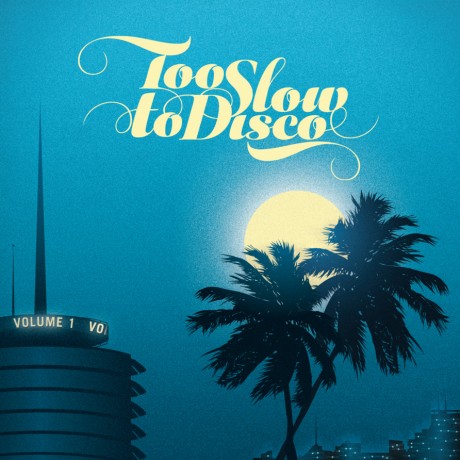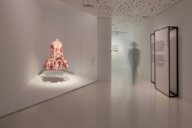TOO SLOW FOR DISCO
In 1967, California became the national hub of American psychedelia, with bands as esteemed as Love, The Doors and Jefferson Airplane dissolving all essence of entrapment and social code, throwing open the doors of perception to a mass of drug-infested followers. Things then came full circle as the Hippie love-in culminated in tragedy, Meredith Hunter’s murder at the Stones’ chaotic Altamont performance providing the movement and the decade with a symbolic bookend. Shining a light on the critically-malnourished acts who occupied the California scene in the aftermath of psych’s acid frenzy, Too Slow To Disco, compiles a 19-song tracklist that acts as a widespread snapshot of a West Coast scene still very much in thrall to excess but looking to throw off the promiscuity and abandon associated with its free-loving, hard-partying predecessors.
Does it work? Simply: yes. An exquisite helping of layered, crystalline sounds that encapsulate the luxurious, sun-drenched California ideal- its golden beaches, luminous sun and syrupy, fairy-tale romances- the compilation boasts a soulful, funky vibe that blends the eclectic mantras of psychedelia with the decadence of early-70s prog whilst precipitating the late-70s disco explosion. Its over-wrought and indulgent production values are probably the result of the more expensive powders and liquids lined up on the mixing deck; where LSD injected disorder into the Hippie kids, the appearance of cocaine supplies these musicians with the power to compose less callous rhyme, producing smooth liquid melodies shorn of revolution and protest, re-introducing pop to its original concerns; love, relationships and aching hearts.
It’s a perfectly pleasant ride into the mid-70s Californian sunset that leans on the era’s wider wealth of pristine songwriters. The mutant funk that clothed Stevie Wonder’s artistic liberation (‘Let’s Put Our Love Back Together’, ‘If I Saw You Again), expressive guitar parts and ethereal sheen of Pink Floyd circa-Dark Side of the Moon (‘Do You Feel It?’), grandiose choruses of Hitsville USA (‘Room To Grow’) and the dewy-eyed sentimentality of Wings (‘Liverpool Fool’) are all picked up along the way. The limited success of these musicians (excepting Fleetwood Mac, the Doobie Brothers) belies their ability to pen contagious, hip-swinging tunes. Although unrecognisable to many, some of those featured are the names behind such mammoth chart hits as ‘You To Me Are Everything’ (Denne and Gold) and ‘Boogie Wonderland’ (co-written by White Horse’s Joe Lind).
So, with the scene’s capacity to construct such aural gold, why has it been left to DJ Supermarkt to unleash this feast of forgotten music into the world? Point the finger at post-sixties California’s inherent excess and lucidity, which whilst infectious, was not to everyone’s taste. When these West Coast artists were dabbling in horns and walls of sound, over in New York, punk was beginning to flower. Those of the Ned Doheny and Don Brown ilk were swimming in the escapist fantasies of the American Dream at the same time as Patti Smith, Tom Verlaine and the Ramones were serenading CBGBs and the like with the American Reality. These punks were the exponents of a sleazy leather-clad poetry that was laconic in its vision and arty at its core- one that spoke the vernacular of the street kids who were no doubt alienated by California’s inconceivable excess.
Too Slow To Disco’s fizzing hi-hats, suave organ riffs and dreamy lustre capture a nation retreating back into itself and ignoring the harshness of its times, turning to pure pop to escape the horrors of assassination, war, mass-murder and Watergate. Should music provide us with a window to the world or throw the shutters down completely? Cynics will lambast the album’s prevailing refusal to engage with pertinent issues but some will see the existent of such songs as much-needed routes to escape.
A cool, inoffensive collection of pop ditties that appear to anticipate the vibrant disco scene that co-existed with punk. Is that a good thing? You decide. We’re going to sit on the (picket) fence on this one.
Dan Owens







